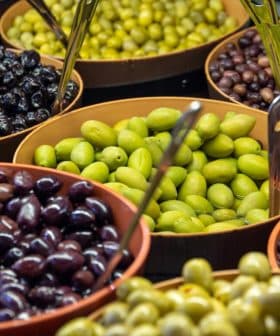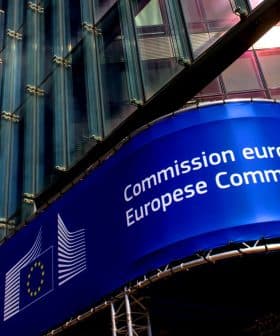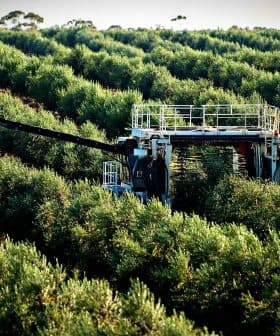Spanish Olive Oil Group Demands Answers From Prime Minister
The Interprofessional demanded to know how the government would help struggling producers and retaliate against U.S. tariffs.
 Pedro Bararo, president of the Interprofessional Organization of Spanish Olive Oil
Pedro Bararo, president of the Interprofessional Organization of Spanish Olive OilThe Interprofessional Organization of Spanish Olive Oil has requested a meeting with Prime Minister Pedro Sánchez to discuss the grave situation faced by the sector, including persistently low olive oil prices and potential additional tariffs on exports to the United States. The European Commission has authorized private storage measures to stabilize prices, but critics argue that this is insufficient to address the structural imbalances in the sector, and it is unlikely that the Spanish government will be able to pressure the United States to remove tariffs.
The board of directors of the Interprofessional Organization of Spanish Olive Oil have written a letter to Prime Minister Pedro Sánchez requesting a meeting with the Spanish leader to discuss the “grave” situation faced by the sector.
“We are facing devastating consequences for the economic and social fabric of our country, a situation that requires urgent and forceful actions by the Government of Spain,” the Interprofessional wrote in their letter.
This price crisis puts at risk of abandonment a large proportion of the Spanish olive groves
Among the topics the Interprofessional is hoping to discuss are the persistently low olive oil prices, which have been hovering between €1.80 ($2.01) and €2.20 ($2.45) per liter for much of the past year – a level that many producers and associations have said is unsustainable.
“The situation requires urgent and forceful actions by the Government,” the Interprofessional wrote. “This price crisis puts at risk of abandonment a large proportion of the Spanish olive groves.”
See Also:Spanish Olive Oil NewsIn response to the enduring price crisis, the European Commission has already authorized private storage measures to remove some olive oil from the market and allow prices to stabilize.
However, the European Commission has only allowed three percent of Spanish olive oil to be privately stored, which critics have said is far too little.
Juan Vilar, an olive oil analyst and consultant, told Olive Oil Times that an imbalance between production and consumption over the past decade has put a lot of downward pressure on olive oil prices.
As annual harvests have steadily risen beyond the three million ton benchmark, olive oil consumption has stabilized in small producing and non-producing countries, while it has dropped in large producing countries.
This has created a structural imbalances in the sector and makes it unlikely that the European Commission’s private storage scheme will be able to bring long-term stability back to the Spanish market.
“Nor does it seem possible, given the financial-economic situation of the European Union, that more funds are going to be allocated to the increase of olive income at its source, especially when there are sectors in similar and worse circumstances, such as dairy, citrus and fishing,” Vilar said.
The Interprofessional also plans to press the prime minister on how Spain will respond to the potential for the United States to impose additional tariffs on Spanish olive oil exports.
According to the organization, the 25 percent tariff on bottled olive oil exports to the U.S. that is currently in place has already impacted 60 percent of Spain’s exports to its main market outside of the E.U.
The United States Trade Representative is now considering additional tariffs on bulk Spanish olive oil exports, which had previously been spared.
“The most disturbing thing is that Donald Trump’s government has shown its willingness to review both the amount of these tariffs and the products affected,” the Interprofessional wrote. “A penalty that, in the worst-case scenario, may involve the application of additional tariffs of 100 percent to all Spanish exports to the United States, which would be equivalent to throwing us out of the American market, the world’s first in the number of consumers.”
If this were to happen, the Interprofessional claims that 140,000 extra tons of olive oil would be added to the pre-existing stocks, which would put even more downward pressure on prices.
However, Vilar believes that it is unlikely that the Spanish government will be able to put any pressure on the United States. Even if Spain were in a position to do so, the removal of tariffs would not fix the aforementioned structural issues that, in Vilar’s view, are a much more significant problem for producers.
“Any pressure on the government that intends to influence Trump would lack a structural strategic effect because it is a palliative tool,” Vilar said. “The abolition of tariffs would not solve – although in the short term it would help – a much deeper problem such as the structural situation of the Spanish olive sector.”
At the time of writing, Sánchez had not publicly responded to the letter sent from the Interprofessional, which also provided no indication of how it plans to proceed with pushing its concerns.









